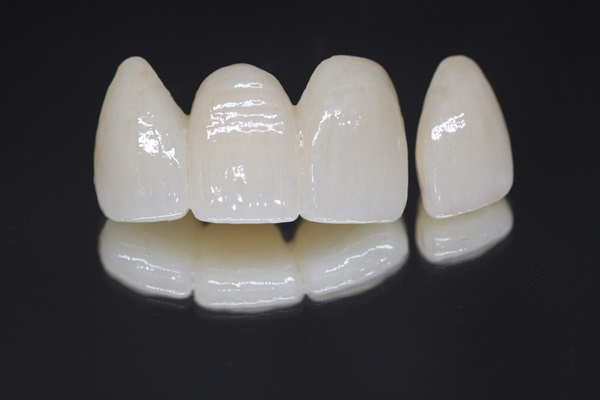How a Dental Bridge Can Improve Your Oral Health

A dental bridge works by filling up the gaps created by lost teeth. Dental implants or crowns support the pontic or prosthetic tooth from either side. Dental bridges provide many benefits, including improving one's ability to eat and communicate. They help protect the jawbone and stop the rest of the teeth from moving into the gap.
The benefits of dental bridges for oral health
Losing a tooth or teeth can be disconcerting. Patients might struggle with chewing and speech articulation. Dental bridges can improve oral health in the following ways:
Stop tooth shifting
The absence of a tooth might cause nearby teeth to move into the gap. As time passes, the jawbone weakens, causing nearby teeth to loosen and finally fall out. Placing a dental bridge across the gap might help keep the adjacent teeth in place. If the dental bridge is anchored on a dental implant, the bone will fuse with the implant to keep the teeth in place. Crowns will act as anchors, allowing bone to develop and cling to them.
Improved oral function
The teeth contribute to the jawbone’s structure and assist in the process of chewing food. Tooth movement due to tooth loss may cause one’s dentition to become crooked, making it difficult to eat and talk. A dental bridge restores the lost tooth and supports the jawbone, ensuring good bite alignment.
Better aesthetics
Having a missing tooth might make the smile seem less healthy, aligned, and consistent compared to having a full set of teeth. Changes in the smile may make individuals feel anxious or self-conscious. A dental bridge may improve the look of the smile by filling up the gap between neighboring teeth. The dentist will work with the patient to create the right dental restoration that gives the best results.
Preserve the jawbone
A dental bridge plays an important function in maintaining jawbone health by preventing it from deteriorating. If a tooth is missing, the jawbone may deteriorate over time, making the face seem older and increasing the likelihood of losing further teeth. The dental implant inside the jawbone provides the necessary stimulation to prevent resorption. This may delay or stop bone degeneration.
Avert further tooth loss
Once the teeth start moving around on the jaw, there is a risk of further tooth loss. Also, plaque and tartar tend to build up in those gaps. If patients fail to replace the tooth, they might be prone to gum disease, which tends to damage gum and bone tissues. This treatment may help protect the tooth's integrity and prevent further deterioration.
The bottom line
If you need a tooth replacement to protect your teeth or gums, a dental bridge may be a great option for you. A dental bridge is intended to be long-lasting and may stay in place for many years. The dentist will examine your dentition during your consultation and introduce you to potential options for replacing the lost teeth. The final dental bridge is customized to fit your mouth, making it indistinguishable from the rest of the teeth. To learn more, book an appointment with our dental office today.
Request an appointment here: https://lavernedentalimplant.com or call La Verne Dental & Implant Center at (909) 575-1034 for an appointment in our La Verne office.
Check out what others are saying about our dental services on Yelp: Dental Bridges in La Verne, CA.
Related Posts
A dental crown supports and protects a weakened tooth when a filling no longer provides enough coverage or strength. Many patients compare these two restorations and want to understand when each one is recommended. A careful evaluation helps determine the best option for long-term comfort, stability, and oral health. Factors such as decay size, tooth…
A dental crown restoration involves two dental visits. Dentists use this type of restoration to repair a range of tooth damage types, including decay, chips, cracks, and teeth worn down by continuous grinding. This guide discusses what you can expect during a dental crown restoration and how a dentist can help ensure a safe and…
Dental crowns are durable and effective for restoring damaged or weakened teeth. They improve the tooth's structure and function while also enhancing your smile's appearance. However, proper maintenance can extend their lifespan and ensure long-term oral health. With the right care, these restorations can last several years, providing a reliable and aesthetically pleasing restoration.A consistent…
Getting a dental checkup is one of the essential steps in your oral care routine. But you might wonder what you can expect during a checkup and cleaning. That way, you can make a more informed decision for your health. Keep reading to learn more about what the procedure involves.The dental hygienist and dentist will…
